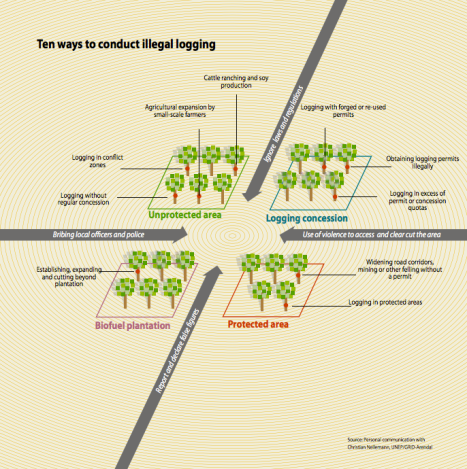In your mind’s eye, come up with the image of the sort of person responsible for rampant tropical deforestation. Got it?
I’m going to guess the person in your mind didn’t look like this:
But apparently it should have. From New Scientist:
It’s not as glamorous as cocaine or diamonds, but the illegal logging industry has become very attractive to criminal organisations over the past decade. A new report finds that up to 90 per cent of tropical deforestation can be attributed to organised crime, which controls up to 30 per cent of the global timber trade.
90 percent.
For years, environmental regulators thought that illegal logging was decreasing worldwide. But they were just looking in the wrong places, says Christian Nelleman, author of the 27 September report from the United Nations Environment Programme.
Import and export records don’t tell the whole truth, he says. When the report’s authors factored in the impact of sophisticated concealment techniques of the kind used by drug cartels, they discovered that rates of illegal logging have actually been rising. The criminals have become simply better at hiding their tracks. Common ploys include forging permits, hacking trade databases, bribing officials, concealing timber’s true origin, and hiding illegal timber amid legal stocks.
The full U.N. report [PDF] outlines how corrupted political systems and forged reports have allowed illegal loggers to escape detection, focusing on case studies in Indonesia, the Congo, and Brazil.
Three solutions to the problem are offered, none simple.
- Reduce profits in illegal logging
- Increase the probability of apprehending and convicting criminals at all levels involved including international networks
- Reduce the attractiveness of investing in any part of production involving high proportions of wood with illegal origin.
A fourth — reincarnate Eliot Ness and familiarize him with international tax codes — may be considered impractical.





